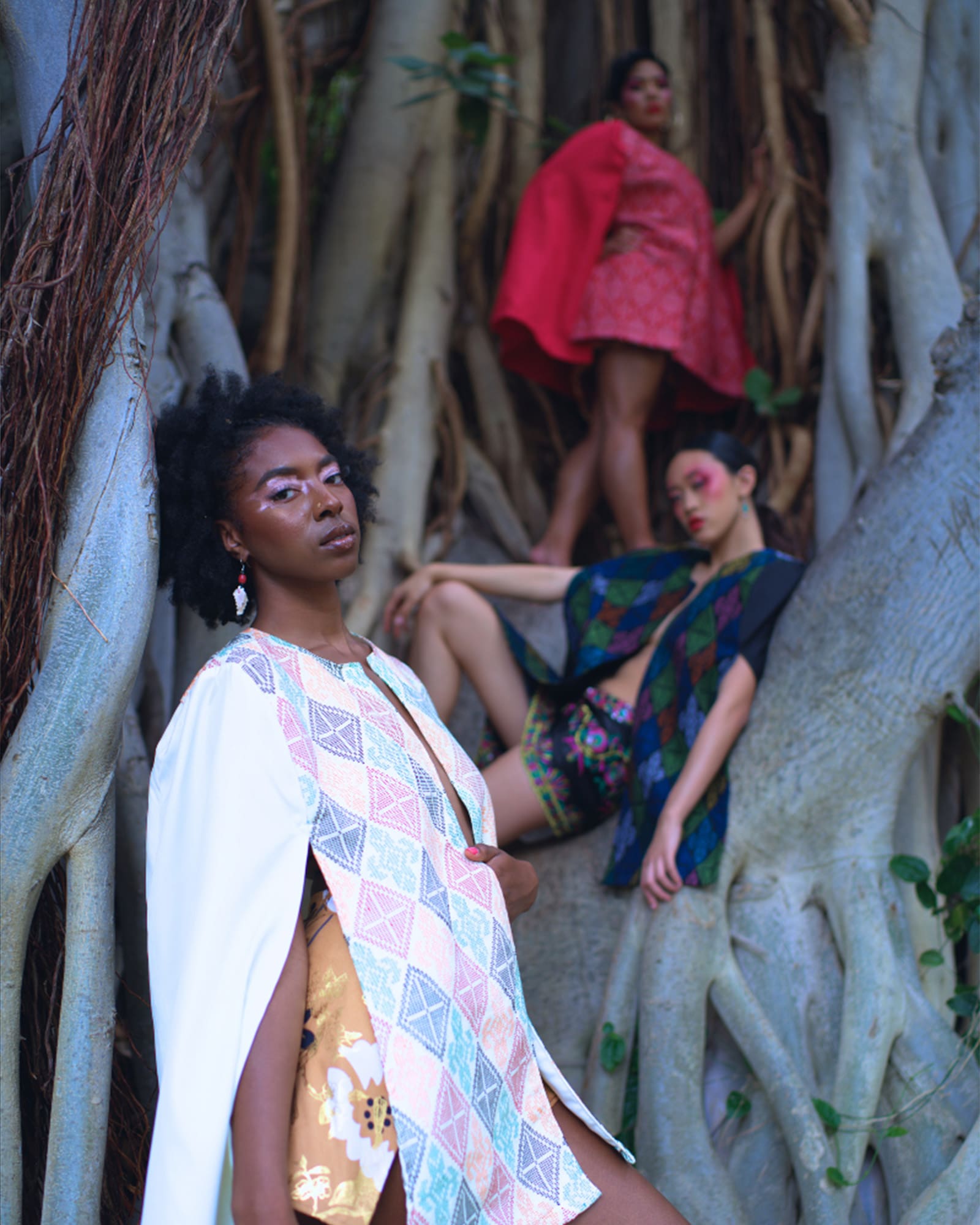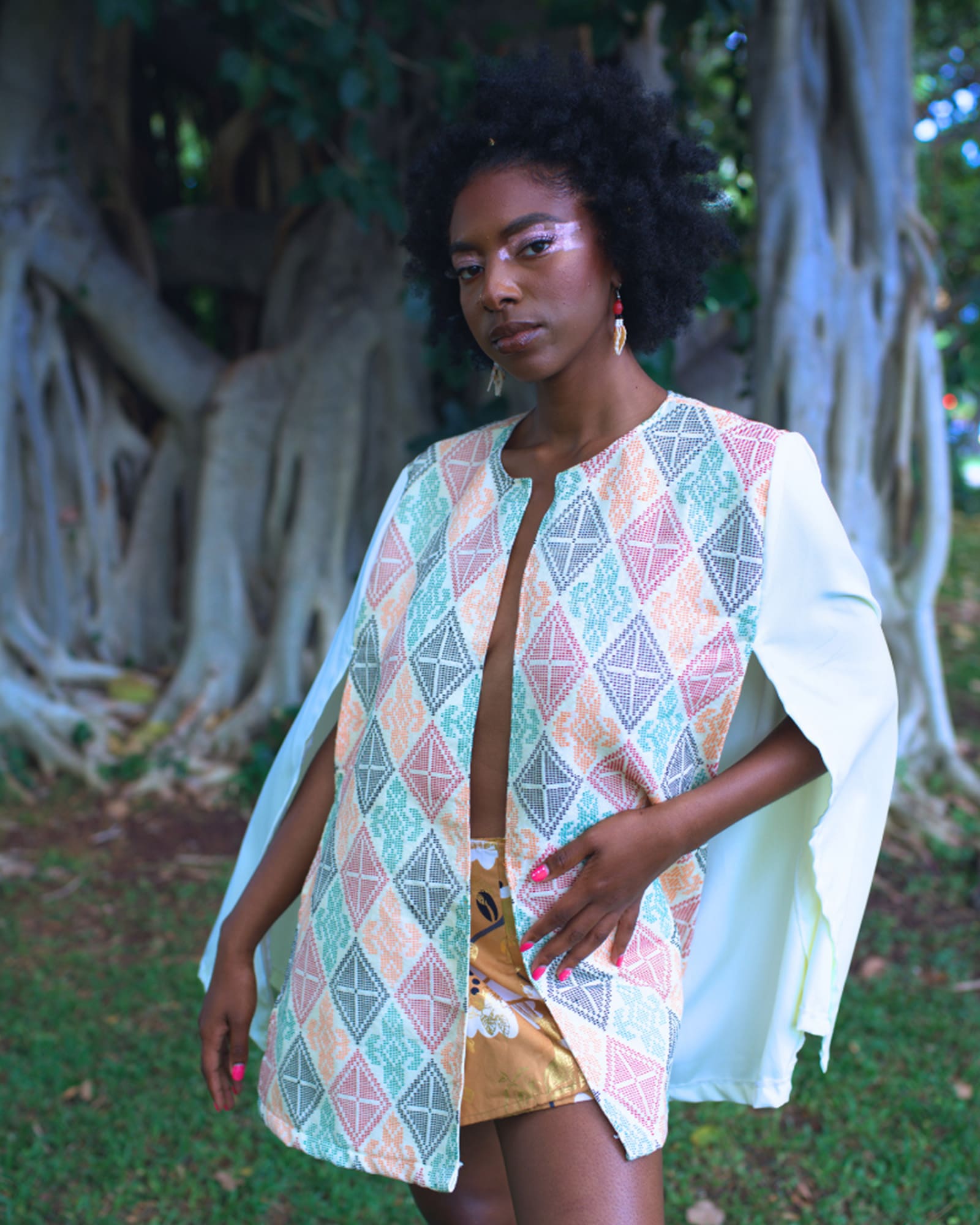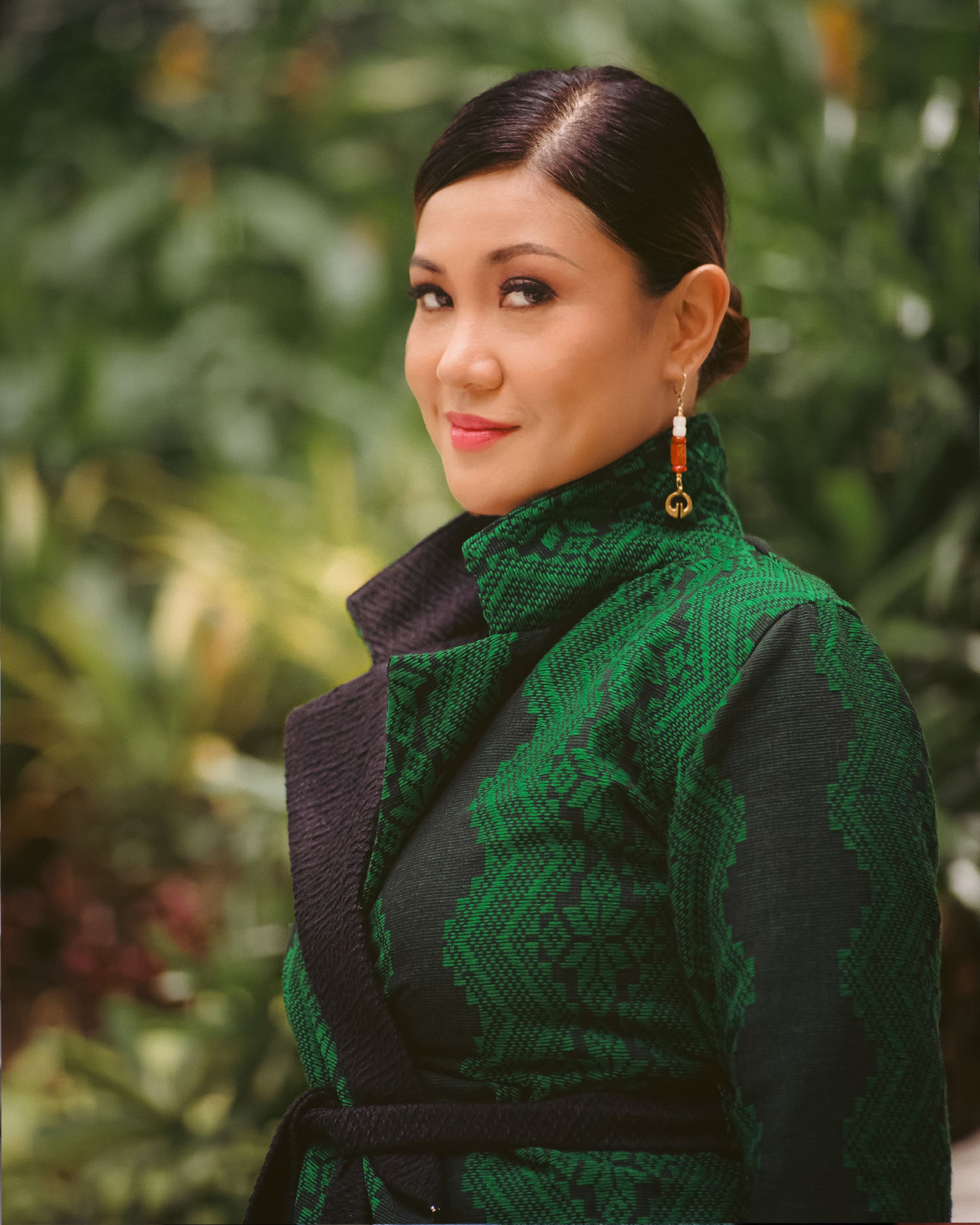Lydia Querian. Photo by Jason Tan
If you’ve seen Bretman Rock watering his sprawling Hawaii garden in nothing but a bahag—an IG post with over a million hearts—then you’ve seen something from Daily Malong, a brand that works with weavers from indigenous communities in the Philippines. Bretman has also worn a sparkly sawal, which are loose trousers typically worn by the Sama and Tausug people, when he unboxed his book You’re That Bitch. And when he first revealed his new hand-tapped tattoo from Lane Wilcken, a Filipino American mambabatok (tattoo master), he was also clad in Daily Malong.
Lydia Querian, the founder of Daily Malong, shares how Bretman, who lives nearby her in Hawaii, would come over and go through her inventory, making a big mess. “He said, ‘Girl, why are you gatekeeping these things from me?’” she laughs. “The first time I met him, I was just blown away by how in touch he is with his culture.”
Daily Malong is making its first appearance at Paris Fashion Week this September 30, joining an independent runway produced by HiTechModa, a group that platforms emerging and POC designers and models. “Daily Malong’s mission is to bring the Indigenous cultural inspiration from the Philippines to the global stage,” says Querian. “We hope to offer a fresh perspective on fashion, one that respects and draws from our ancestral knowledge while staying in tune with modern trends.”

The brand’s tagline is “Indigenous is the future,” but to get to that point Querian first had to reconcile with the past. With a background in dance, she migrated to San Francisco from the Philippines in 2010 to look for spaces where she can continue her practice. There, she met the choreographer Alleluia Panis, considered an elder in the Filipino American artistic community. Joining an immersive tour program led by Panis, she traveled to places in Mindanao, and particularly Maguindanao, that she had only previously believed as dangerous, and that’s when she had her revelation. A product of Catholic schools in Manila, she realized that the education she received was quite lacking when it came to our diverse Philippine heritage. In Cotabato, along the Pulangi River, she took part in a pre-Christian, pre-Islamic ritual that invokes the ancestral spirits—a ceremony she has since committed to join every other year. “The tour became a catalyst for reconnecting with something that had been lost over generations of trauma,” Querian says. “It initiated a profound process of my self-discovery.”
These trips also exposed her to the various weaving communities, from the T’Boli to the Iranun, whose textiles inspired her to start a line of apparel that allows her to share the beauty of the craft with Filipinos in the diaspora. “A lot of designers in the Philippines are now using traditional fabric in their clothes, but for me, what I have observed in the Filipino American is a hunger for identity,” she explains. “I established Daily Malong to give light to that experience that Filipino Americans are going through, and the reason I called it Daily Malong is because you can wear it every day, you can bring it to all your Filipino events. And that’s a piece of you, as a Filipino in the diaspora, that you can bring with you anywhere and every day.”
Querian’s process of reconnecting to our pre-colonial ancestry encompasses the other arts, as well. She and her husband Ron Querian learned how to play the kulintang (brass gongs) under Danny Kalanduyan, a master kulintang artist from Datu Piang, Maguindanao who became an ambassador for Filipino cultural music in the US. Ron records kulintang dance music under the moniker Kulintronica, and since 2017 the couple have been producing the bi-annual kulintang festival Gongster’s Paradise, featuring contemporary and traditional kulintang musicians from all over the world. The idea for the festival, which is the only one of its kind in North America, came to Querian in a dream she had of Kalanduyan. When she woke up, she found out Kalanduyan had just passed.


She recalls how they were recently invited to perform the kulintang in Maguindanao, and a teenaged boy came up to her and said that he remembered her from a performance several years earlier. It was because of them, he said, that he asked his mother to get him a kulintang set, even though his mother had been trying for so long to get him to pick up the gongs, to no avail. “But he saw that we were from California, playing the instrument, and he became interested,” Querian says, adding that Master Danny had believed that if the youth from Maguindanao saw how their music was appreciated in Western societies, they would be encouraged to continue and preserve their traditions. She notes, “There’s a lot of exchange synergy between the things that we do, and the people who actually own the culture.”
With the growing interest in supporting locally woven textiles, Querian has also noticed an increase in the number of weavers when she visits the communities of the different ethnolinguistic groups. “It’s really beautiful to see and watch how it is evolving and thriving,” she says. Kulintang music, Querian believes, should be allowed to evolve in the modern world while keeping the soul of its rhythms. Likewise, she hopes that indigenous culture will shape the future of fashion, and it begins with making it part of your every day.
